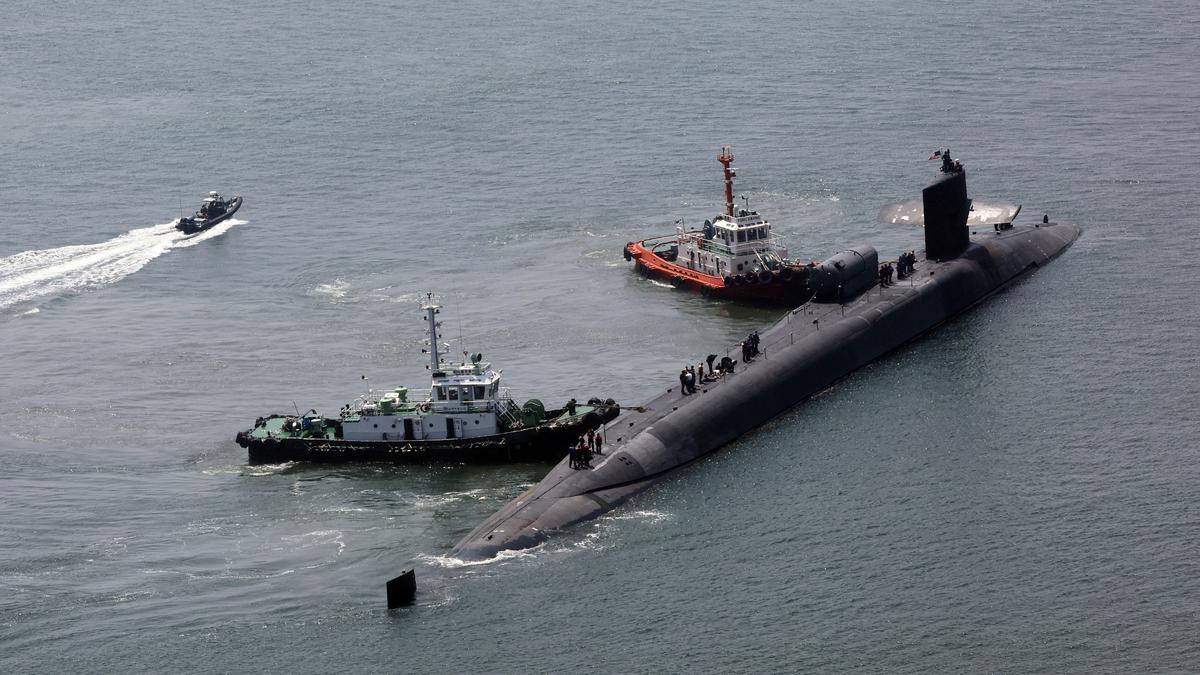
U.S. nuclear-powered submarine arrives in South Korea, a day after North Korea resumes missile tests
The Hindu
The United States deployed a nuclear-powered submarine capable of carrying about 150 Tomahawk missiles to South Korea on June 16, a day after North Korea resumed missile tests in protest of the U.S.-South Korean live-fire drills.
The United States deployed a nuclear-powered submarine capable of carrying about 150 Tomahawk missiles to South Korea on June 16, a day after North Korea resumed missile tests in protest of the U.S.-South Korean live-fire drills.
The USS Michigan’s arrival in South Korea, the first of its kind in six years, is part of a recent bilateral agreement on enhancing “regular visibility” of U.S. strategic assets to the Korean Peninsula in response to North Korea's advancing nuclear program, according to South Korean officials.
With the deployment of the USS Michigan, the U.S. and South Korean navies are to conduct drills on boosting their special operation capabilities and joint ability to cope with growing North Korean nuclear threats, the South Korean Defence Ministry said in a statement.
It said the U.S. submarine arrived at the southeastern port city of Busan but didn’t say how long it would stay in South Korean waters.
The USS Michigan is one of the biggest submarines in the world. The Ohio-class guided-missile submarine can be armed with 150 Tomahawk missiles with a range of about 2,500 kilometres (1,550 miles) and is capable of launching special forces missions, according to the South Korean statement.
The South Korean and U.S. militaries have been expanding their exercises in reaction to North Korea’s provocative run of missile tests since last year. North Korea has argued it was forced to ramp up testing activities to deal with its rivals’ expanded military drills that it views as an invasion rehearsal, but experts say the North ultimately aims to modernize its arsenal and increase its leverage in eventual diplomacy.
In April, after their meeting in Washington, President Joe Biden and South Korean President Yoon Suk Yeol agreed that the United States would enhance the “regular visibility of strategic assets to the Korean Peninsula.” Mr. Biden also stated that any North Korean nuclear attack on the U.S. or its allies would “result in the end of whatever regime” took such action.

The 29th edition of the Conference of Parties (COP29), held at Baku in Azerbaijan, is arguably the most important of the United Nations’ climate conferences. It was supposed to conclude on November 22, after nearly 11 days of negotiations and the whole purpose was for the world to take a collective step forward in addressing rising carbon emissions.










